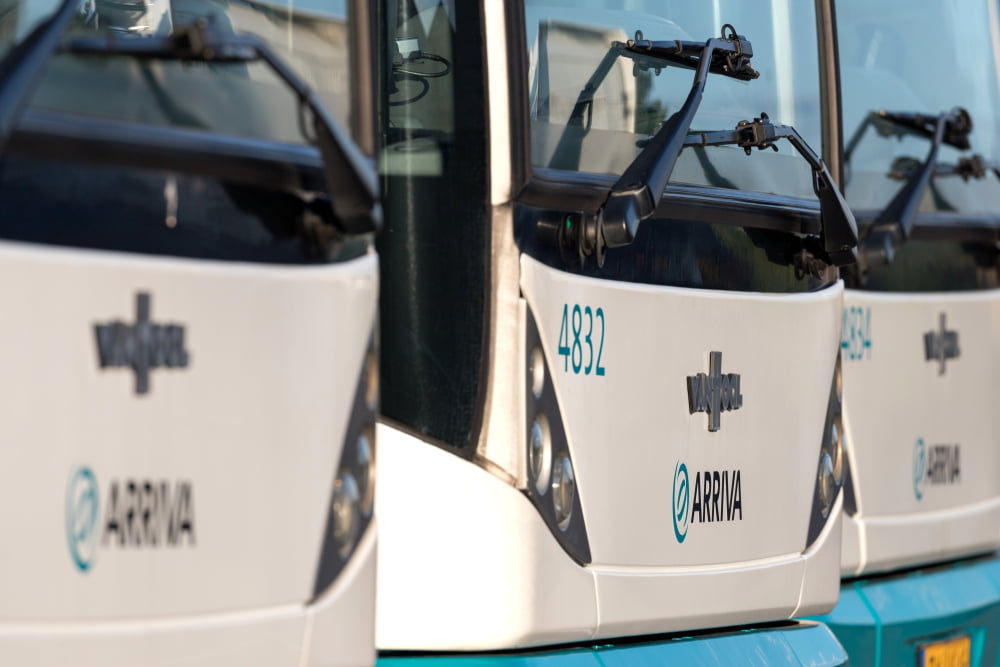The employers do not know at the moment how things will continue, FNV has announced that there will be a strike on 19 and 20 January.
The public transport employers (VWOV) and trade unions FNV and CNV negotiated late into the night about a new public transport collective labor agreement 2023. The trade unions broke off the consultations, despite a wage offer of 8% from 1 January 2023. The employers' proposal is a collective labor agreement of 1 year, with a wage increase of 8%. The employers' total offer, including other measures, equates to an 11% improvement in working conditions.
Staff of regional carriers such as Arriva, Keolis, Qbuzz and Transdev will stop working on Thursday and Friday. Marijn van der Gaag, FNV director, disputes that the talks were broken off despite what the employers call an above-average wage offer and says that the parties simply ended up in an impasse. The discussion would still be about that wage increase. In addition, there would be disagreement about the duration of a new collective labor agreement and the measures to reduce the workload in regional transport.
According to the chairman of the VWOV Fred Kagie, the employers have made an above-average wage offer. Kagie argues that when you look at the developments in collective bargaining wages over the past period and what is happening in the transport sector, the offer of 8% for 2023 is above average in the Netherlands.
"It is irresponsible to allow the costs of companies to rise even higher. This would jeopardize the continuity of public transport. Since corona, passenger numbers have not yet reached their old level and this year we hardly receive any support from the government .' Kagie is surprised about the attitude of the unions: "The government is taking unprecedented measures that will dampen inflation considerably and improve purchasing power. A median income rises by 3,7% due to government measures, for lower incomes that is even more. The commandments 8 % wage increase in 2023 means a major step for employees in the sector and, together with the government measures, a significant progress in salary."
Fred Kagie - chairman of the VWOV
In addition to wages, employers and unions continued to talk about a generation pact. Almost agreement was reached on this. This is a scheme that employees in regional transport can use from the age of 63, whereby an employee works 60%, is paid 80% and accrues 100% pension. Employers have proposed to bear the costs of this scheme in full. The generation pact is an important measure in the context of sustainable employability and the reduction of work pressure. At the moment we do not know how the employers will proceed.
“We really did everything we could to conclude a collective labor agreement. We will grant every employee the 8% wage increase, the generation pact and an improvement of the other employment conditions as soon as possible. We hope that the trade unions will talk to us about this again soon.”
Fred Kagie - chairman of the VWOV

There are two collective labor agreements in regional transport, partly with the same companies. This is quite complex and sometimes leads to confusion. Also in relation to messages about possible strikes. This concerns the Public Transport Collective Labor Agreement and the Multimodal Collective Labor Agreement. We would like to briefly explain how this works.
public transport collective agreement
The Association of Public Transport Employers (VWOV) is negotiating the Collective Labor Agreement for Public Transport. The VWOV represents Arriva, Keolis, Transdev, Qbuzz, EBS and RET. The VWOV is negotiating with FNV and CNV about the Collective Labor Agreement for Public Transport. This applies to about 13.000 people. The FNV has previously announced that there would be a strike on January 19 and 20 if there were no results in the public transport collective agreement.
The CNV is participating in these strikes on 19 and 20 January for the public transport collective agreement did not along. During previous FNV strikes in the autumn, an average of about 70 percent of the timetables were implemented. There are regional differences in how much transport there is at which location. In view of the above-average wage offer, it remains to be seen how high the willingness to strike will be if the strikes do indeed continue.
collective bargaining agreement Multimodal
Public transport companies that operate trains in addition to buses also have the collective labor agreement Multimodal. (MuMo). This applies to approximately 1200 people in the sector. The majority of the people covered by this collective labor agreement work on the train. Separate negotiations are being conducted for this collective labor agreement. The next negotiations for the MuMo collective labor agreement are scheduled for Wednesday, January 18, 2023. The companies Arriva and Keolis are negotiating this collective labor agreement with VVMC, CNV, and FNV. Qbuzz also implements the MuMo collective labor agreement for a small number of employees. For the MuMo collective labor agreement, strikes have currently been announced by trade unions on 19 and 20 January if no results are achieved here.
NS employees have their own collective labor agreement, just like the staff of urban transport in Amsterdam, Rotterdam and The Hague. That's why they don't join the strike. The CNV probably does not directly participate in the strike either. It is striking that trade union FNV breaks off negotiations or does not reach an agreement with employers much more often than CNV. This is not only the case in this impasse, but was also the case for the Collective Labor Agreement for Taxi and Care Transport.


